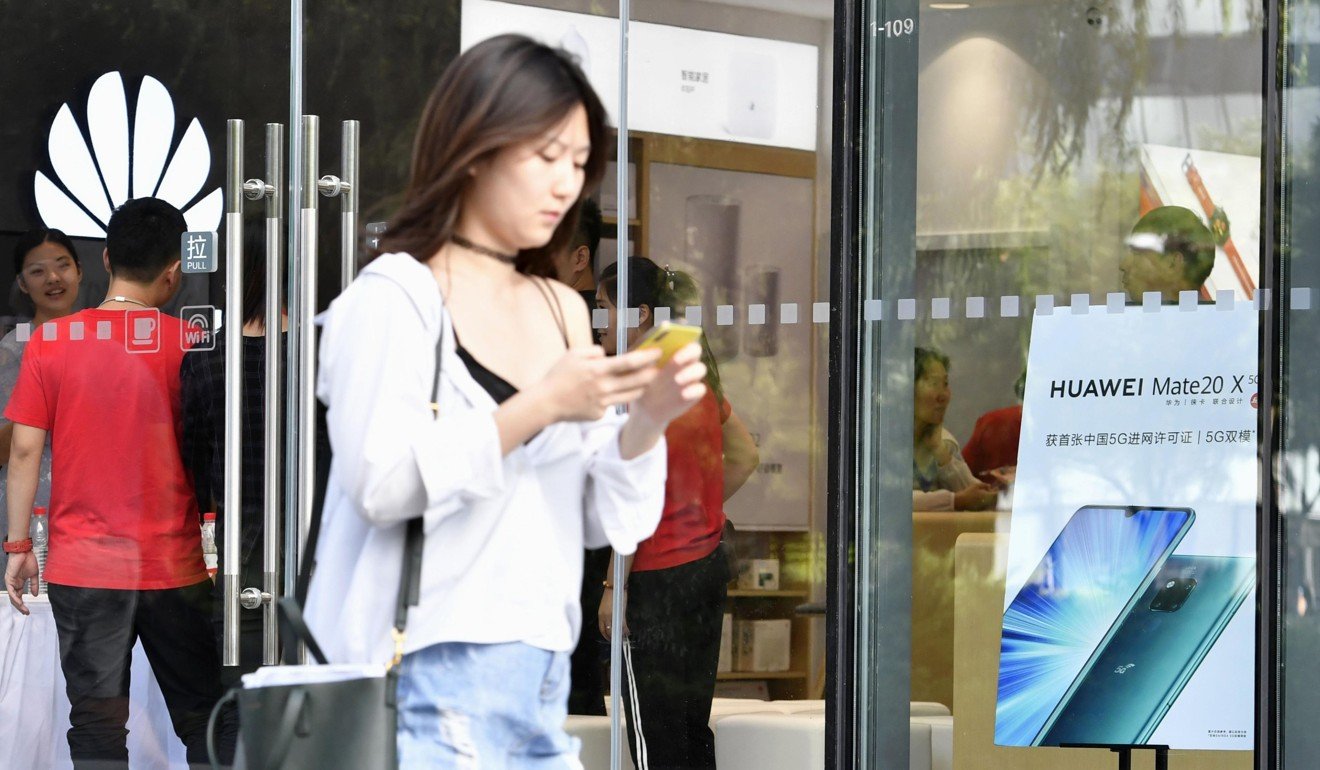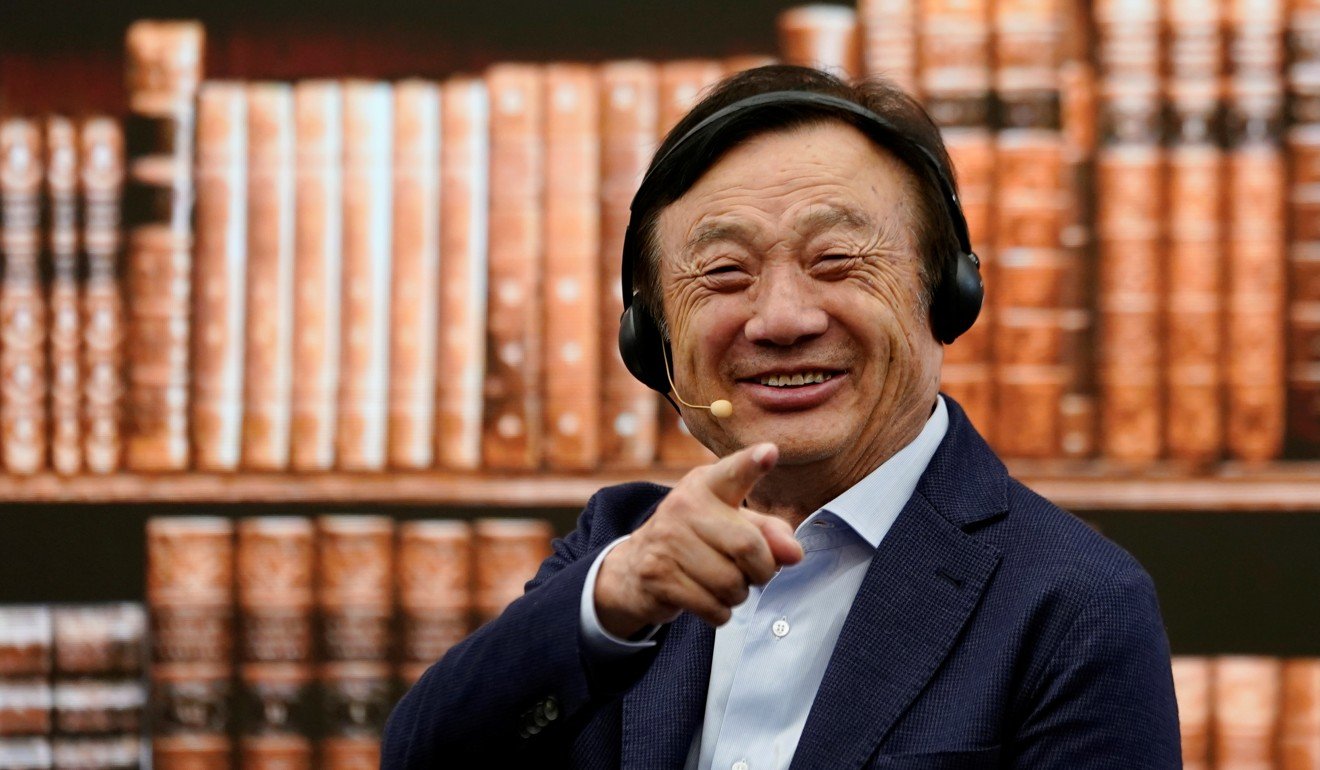
Intelligence officials tackle Huawei’s power as Donald Trump’s decision is unclear
- US experts ponder ‘nightmare scenario’ in which Chinese telecoms giant emerges as uncontested leader in 5G technology
- Despite security concerns, president is considering using Huawei as bargaining chip in US trade war with Beijing
This story is published in a content partnership with POLITICO. It was originally reported by Adam Behsudi on politico.com on August 19, 2019.
US intelligence officials recently brought together experts to game out how Huawei’s reach into next-generation 5G wireless technology could test US global alliances.
The simulation organised by government intelligence agencies comes even as US President Donald Trump has considered using the Chinese telecommunication giant as a bargaining chip in his trade war with Beijing.
Specialists in cybersecurity, China’s economy, trade and other areas were practising, among other scenarios, how the US would respond to a world in which Huawei emerges as the uncontested leader in 5G technology, three people who took part in the exercises said. That would place the Chinese company in a central spot of the vast global communications backbone.
“The point is, what does the world look like in a nightmare scenario?” said one person who was present. This person added that it is still unclear what the findings of the exercise will mean in terms of policy.
The uncommon exercise took place over two days last week in suburban Washington and was organised under the National Intelligence Council, which is part of the Office of the Director of National Intelligence.
It is yet another sign that the US intelligence sector’s view of Huawei’s threat is in sharp contrast with Trump’s willingness to ease up on restrictions on Chinese companies in return for trade concessions.
Has US security adviser John Bolton killed Huawei’s UK ambitions?
Among US policymakers and lawmakers, the Shenzhen-based company has emerged as a central villain in a broader fight between Washington and Beijing over dominance of technologies like 5G – a new generation of superfast network technology seen as crucial to the future of the internet.
The company is frequently accused of having deep ties to the Chinese military and of building much of its innovation from stolen US intellectual property. Huawei officials have repeatedly denied such allegations.
The US Commerce Department blacklisted Huawei in May as a national security threat, effectively prohibiting the company from buying services and parts from American firms. Semiconductor companies based in the US, which rely on Huawei for a good share of business, are pushing for waivers that would allow some sales to resume.
Trump has also signed an executive order that would block Huawei from selling equipment in the US and Congress passed a law last year that would ban procurement of Huawei products by federal agencies.
Those efforts have buttressed a broader campaign by the US to urge allies to end contracts with Huawei and strip the company’s technology from their networks. Japan, Australia and New Zealand have heeded those warnings. But other major allies – including Britain, Canada and Germany – remain unconvinced and continue to do business with Huawei.
Huawei wants an ‘iron army’ to fight off US tech offensive
Rural wireless networks and internet providers in the US also depend heavily on Huawei technology for their infrastructure equipment.
Despite the intelligence community’s concerns about Huawei’s power, Trump has indicated that he would be willing to negotiate with Beijing on lifting sanctions if it accedes to US demands in trade talks.
In May, Trump warned that “Huawei is something that is very dangerous” from a “security standpoint, a military standpoint”.
But he nevertheless went on to add: “It's possible that Huawei would be included in a trade deal. If we made a deal, I can imagine Huawei being included in some form or some part of a trade deal.”

One person involved in last week’s exercise said it was clear the meeting was focused on the long term and not meant to offer an immediate policy solution in the context of Trump’s trade fight.
“The timeline of this is not consistent with the way the president looks at the world,” the person said.
The Office of the Director of National Intelligence was unable to respond to a request for comment.
Another participant in the exercise criticised the process for not being focused enough on the market realities of rolling out new wireless networks.
Huawei unveils Harmony OS for smartphones as Android fate looms
“It was very big picture” with too much focus on “high-level political machinations”, the person said, adding that most of the scenarios envisioned Huawei being taken off Commerce’s blacklist.
Trade negotiations between the US and China have been focused on getting Beijing to relent on policies and practices Washington says have forced US companies to hand over technology to do business in the Chinese market.
But Trump has also made other demands that many people see as fulfilling his short-term political ambitions. Those include commitments that Beijing ramp up purchases of US agricultural goods to help farmers already hurting from Chinese retaliatory actions.
The US has already imposed 25 per cent tariffs on US$250 billion worth of Chinese goods; by the end of the year, it is set to slap additional penalties on almost all that the nation imports from China.

Lawmakers have pressed Trump not to ease up on Huawei, pointing to the company’s efforts to aid North Korea’s regime and skirt US sanctions on Iran. The Washington Post reported last month that Huawei secretly helped the North Korean government build a commercial wireless network.
The Wall Street Journal reported last week that Huawei technicians helped African governments spy on political opponents. The company vehemently rebutted the Journal’s story in a letter to the newspaper.
The mounting evidence has heightened fears that Huawei’s development of 5G infrastructure in other countries could create a so-called back door for China to spy via the company’s network connections.
In the latest test exercises, US experts also were figuring out the implications of removing Huawei technology from foreign networks, one of the people close to the matter said.
Huawei wins 90-day reprieve on US ban, but more affiliates are blacklisted
Huawei founder and CEO Ren Zhengfei has dismissed US concerns over the company’s involvement in 5G technology.
“5G is just a tool that helps networks operate faster,” Ren said last month in an interview with Yahoo Finance. “It's good for the world. 5G is not an atomic bomb. How has it become a threat?”
But the executive, who himself is a member of China’s Communist Party, made clear that US actions do not threaten the company’s survival “at all”, especially when it comes to 5G technology.
“The more advanced a product is, the fewer risks we face,” Ren said. “For example, in 5G, America doesn’t have many cutting-edge chips, Huawei is the sole provider. Our optical chips are the most advanced in the world. We can live without US suppliers in many areas, but this is not what we want.”

Meanwhile, the race to gain more market share over global telecommunications systems continues. Huawei is leading the global 5G race compared to competitors in Europe.
Ericsson's latest count was that it struck 47 agreements with operators, of which it added nine were up and running and 22 were presently being rolled out. Nokia has announced 43 contracts.
Huawei said in late June it had secured 50 contracts globally.
Eric Geller contributed to this report.

